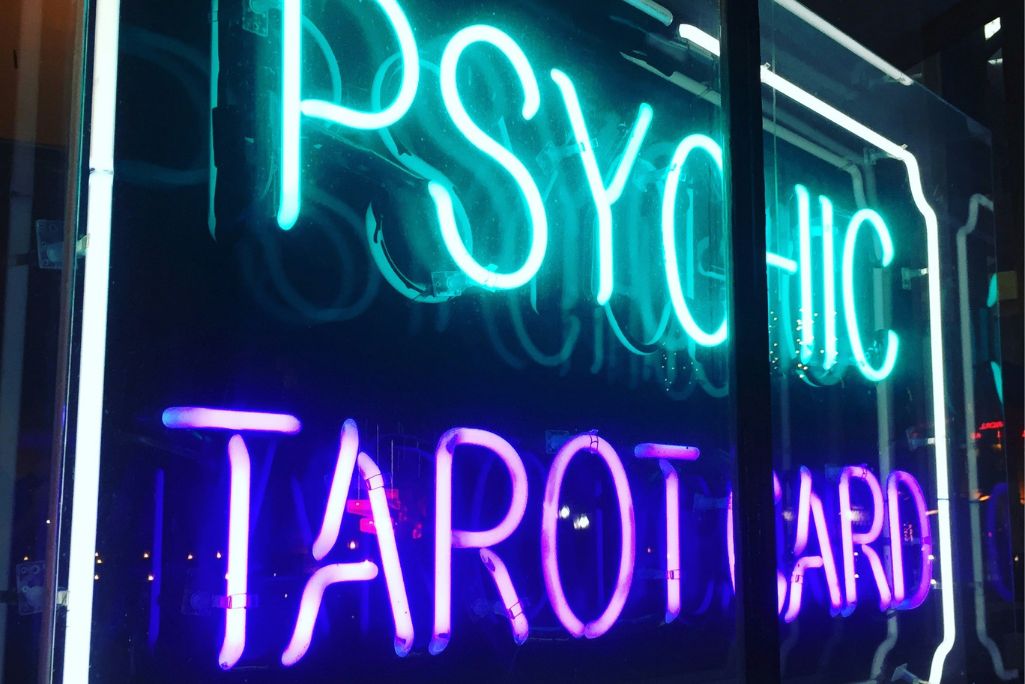
NEW ORLEANS (BP) — Greg Mathias, who teaches global missions at New Orleans Baptist Theological Seminary (NOBTS), told Baptist Press that while in Jackson Square this past weekend, he likely walked past five fortune tellers and tarot card readers, common sights there.
But according to Pew Research, many Christians in the U.S. are not just passing by such phenomena. More than a quarter of Christians engage with such psychic phenomena, most often astrology in the form of printed horoscopes, at least once or twice a year, and most who do say it’s just for fun.
“I would just say … even living in a city like New Orleans but also being a believer and thinking kind of from my area of expertise, kind of missiologically, that we’re reminded from the Scriptures that we don’t live in a world that is simply flesh and blood,” Mathias told Baptist Press. “And so I would say particularly for believers, that we can’t look at those as just simply a fun activity, that those should be certain things that we stay away from.”
While Mathias treats people in Jackson Square with the love and respect due humanity, he cautions that engaging them should not be considered a fun “tourist activity.”
“Those things are real,” he said, “and what you’re delving into are things that as believers we shouldn’t have a part of.”
Most Christians don’t engage in psychic phenomena. But 27% consult astrology such as horoscopes at least once or twice a year, Pew Research found, with 9% turning to tarot cards and 6% to fortune tellers just as frequently. And while many respondents said such activities are mostly a fun pastime, 25% of Christians believe the astrological positions of the planets and stars impact their lives. That’s nearly as high as the 27% of the general U.S. adult population who say the same.
How do Christians engage with friends, whether Christian or not, who defend such practices as simply fun?
“But my question is, what are you seeking out even in that interaction?” Mathias said he would ask.
“Because is it a lack of trust in what God is up to in your life, of how He’s providing, of looking to the Scriptures?” he said. “Because again, you’re still, even though you’re approaching it as fun, you’re seeking something.”
Mathias references Acts 16: 16-18, which records the encounter of Paul, Silas and Timothy with a fortune teller who persisted in following them and shouting.
“But Paul again, whether it was just from pure annoyance, or also I believe it was more than that, he rebuked (the fortune teller) in the name of the Lord,” Mathias said. “And we see that, the reality of a demon leaving this young lady. I think it just paints that picture that this should be something we shouldn’t even approach as a fun activity.
“As a believer we shouldn’t mix ourselves with that,” Mathias said. “Elsewhere in the Scriptures it talks about Satan even kind of pretending to be an angel of light.”
Pew released the findings on May 21 of the nationally representative survey of 9,593 U.S. adults conducted in October 2024. Findings include:
- Among the 28% of Christians who consult astrology, horoscopes, tarot cards or fortune tellers are aggregates of 20% who do it just for fun and 8% who seek helpful insights.
- 26% of Jewish Americans consult astrology or horoscopes once or twice a year, including an aggregate of 19% who say it’s just for fun and 8% who seek helpful insights.
- 72% of Christians never consult such phenomena, including 73% who never consult astrology or horoscopes, 91% who never turn to tarot cards and 94% who never rely on a fortune teller.
- Among the general U.S. adult population, 70% never consult such phenomena, including 71% who never consult astrology or a horoscope, 88% who never consult tarot cards and 93% who never consult a fortune teller.
Pew’s findings are available here.
(EDITOR’S NOTE — Diana Chandler is Baptist Press’ senior writer.)


